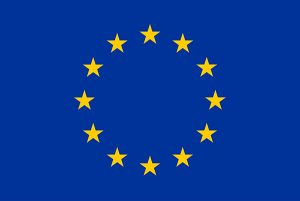In Episode 7 of Series 2 of our podcast we talk with Professor Susan Harkness from the University of Bristol and PI of DIAL’s EQUAL LIVES project about how economic disadvantage accumulates for single mothers and the impacts on their income and risk of poverty of having a child and splitting up from a partner. … Read more
In Episode 7 of Series 2 of our podcast we talk with Professor Susan Harkness from the University of Bristol and PI of DIAL’s EQUAL LIVES project about how economic disadvantage accumulates for single mothers and the impacts on their income and risk of poverty of having a child and splitting up from a partner. … Read more
In the final episode of the DIAL podcast we’re looking at what’s been learned from DIAL projects about how and when inequality manifests in our lives and what its longer term consequences might be. We’re joined by Elina Kilpi-Jakonen from the University of Turku in Finland. Elina is the Scientific Coordinator for DIAL and, as … Read more
In Episode 5 of Series 4 of the DIAL Podcast we’re in conversation with Andreas Peichl, Professor of Macroeconomics and Public Finance at the University of Munich and Principal Investigator of a DIAL project looking at the impact of childhood circumstances on individual outcomes over the life-course (IMCHILD).
In Episode 4 of Series 4 we’re talking to Professor Sakari Lemola from the University of Bielefeld and formerly from the University of Warwick. Sakari is one of the Principal Investigators of the DIAL project PremLife, which has been looking at what factors can provide protection and increase resilience for preterm children’s life course outcomes. Transcript Christine Garrington … Read more
In Episode 3 of Series 4 of the DIAL Podcast, we are in discussion with Richard Blundell. Richard is the Ricardo Professor of Political Economy at UCL, director of the ESRC Centre for the Microeconomic Analysis of Public Policy at the Institute for Fiscal Studies and the principal investigator of a DIAL project looking at … Read more
The journal Research in Social Stratification and Mobility has published a highly interesting special issue on mechanisms of educational stratification including several papers from the LIFETRACK project: Editorial Introduction to “Mechanisms of educational stratification” by Vikki Boliver and Steffen Schindler. Article by Vikki Boliver and Queralt Capsada-Munsech looking at how pupils’ enjoyment of the subjects they study is … Read more
In Episode 2 of Series 4 of the DIAL Podcast, we are in discussion with Professor Hans van Kippersluis from the Erasmus University in Rotterdam. Hans, Professor of Applied Economics, is the Principal Investigator on the DIAL project, Gene Environment Interplay in the Generation of Health and Education Inequalities, which has used innovative methods and data … Read more
In Episode 1 of Series 4 of the DIAL Podcast we’re in discussion with Professor Kjell Salvanes and Dr Helen Wareham to talk about the impact of inequality on the lives of children. Kjell is the Principal Investigator on Growing up Unequal? The Origins, Dynamics and Lifecycle Consequences of Childhood Inequalities while Helen is a Research … Read more
In Episode 16 of Series 3 of the DIAL Podcast we’re discussing ability grouping in UK primary schools and how it affects children’s enjoyment of certain subjects. Our guest today is Queralt Capsada-Munsech from the University of Glasgow, who as part of DIAL’s LIFETRACK project has been looking at primary school children’s enjoyment of English and … Read more
Dynamics of Inequality Across the Life-course (DIAL) is a multi-disciplinary research programme consisting of thirteen European projects. The projects examine the sources, structures and consequences of inequalities in contemporary societies. The programme is funded by NORFACE for the period 2017–2021.

This project has received funding from the European Union's Horizon 2020 research and innovation programme under grant agreement No 724363
Interested in learning more about the dynamics of inequality?
Sign up to stay informed about upcoming publications, conferences and workshops.
We will send you a quarterly report on activities across all research projects. For more information on how we store your data, please see our Privacy Policy.
